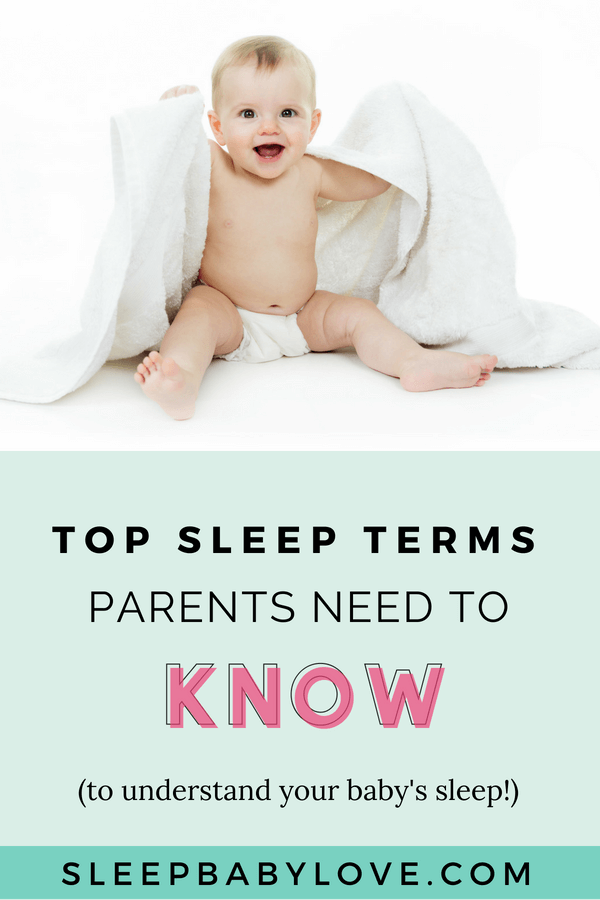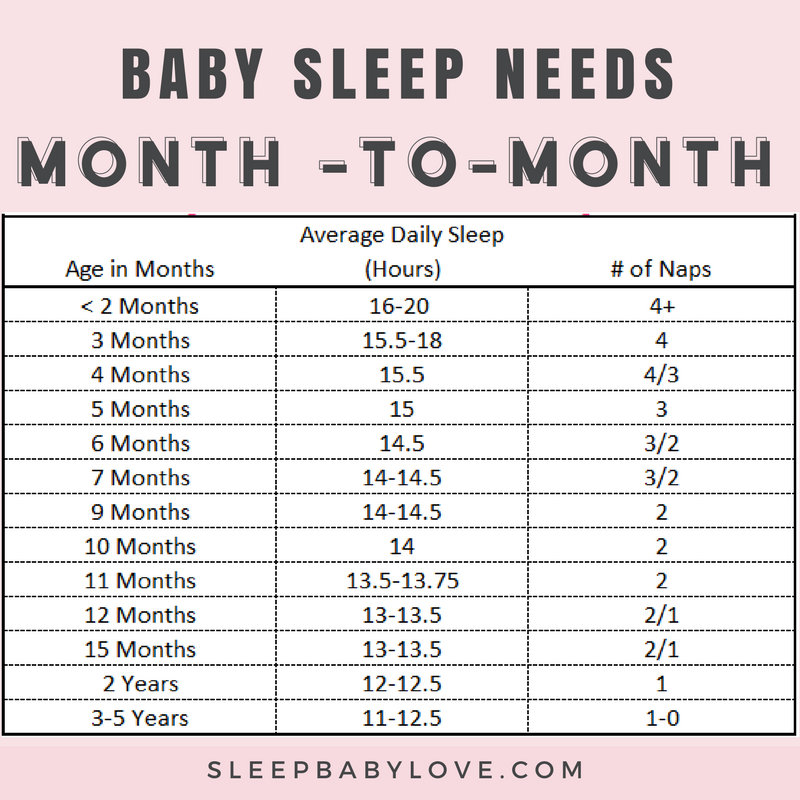Top Sleep Terms That You Need To Know
You read sleep blogs, read books – but what are they talking about? I’m here to help clarify the sleep lingo by defining the top sleep terms that you need to know!
Sleeping Through the Night (“STTN”):
In terms of sleep, this is the one hypothetical baby badge that every mamma wants to wear. The technical definition is that your baby is sleeping through the night without feeds. How long through the night? Well, that answer is up for debate based on each baby’s unique feeding needs and self-soothing skills. My definition for sleeping through the night is about 10-12 hours of uninterrupted sleep without a feed (starting around 4-6 months). If you aren’t there yet, and are doing other things ok, don’t fret – it’s completely normal for a baby to still require a feed until around 9 months (sometimes longer).
Early Wakeup:
A wakeup earlier than 6:00 am…habitually. Sorry to say, but when a lot of people grovel about the 6 am wakeup, I most times have to say that it’s just a biological wakeup time and it is hard to change. Most babies will naturally wake up between 6 am and 7:00 am (sometimes earlier and of course sometimes later).
Dream Feed:
The act of actually waking your sleeping baby (around 10:00pm) for a feed in the hopes that they will sleep longer through the night allowing you and the baby a little more rest. For some, a dream feed works wonders. For others, not so much.
Sleep Logging:
The act of tracking your child’s sleep patterns either by good ‘ol paper and pencil or via a sleep logging website. My favorite online sleep tracking site is TrixieTracker.com (which is a paid subscription after a free 2 week trial). The purpose of a sleep journal is to uncover hidden trends in your baby’s sleep rhythm allowing you develop a solid sleep schedule.
Total Wake Time:
The amount of time during a 24 period that your child is up during the day. To calculate total wake time, you will subtract out overnight sleep and naps. Since most sleep logging sites, calculate Total Wake Time as Midnight to Midnight, that’s how I do it. Most babies older than 6 months old, have an AVERAGE total wake time between 8 and 10 hours, but varies greatly by child.
Wake Time:
The amount of time that your baby is up between napping periods. For example, if your baby woke at 7 am and went to sleep at 9 am, they had a 2 hour wake time. Wake-times are mostly important for young babies since they are so sensitive to becoming overtired. As a baby gets older than 4 months, you can schedule naps around age appropriate wake times or transition to a solid by-the-clock schedule. I use both approaches with my clients depending on their individual history and needs.
Average Daily Sleep Requirement:
The amount of average sleep that a child need as compared to their age group. Yes, I get it, these are averages.
High Sleep Needs:
A baby that needs more sleep throughout the day. These are the 1 year olds that take 2 solid 2.5 hour naps per day plus sleep an average of 12+ hours overnight. Sleep is a biological need and these children just need to sleep! It’s also possible that the parents have just set up really healthy sleep habits to allow them to be rockstar sleepers – it’s also partially genetic.
Low Sleep Needs:
Those babies that just don’t need as much sleep as typical average daily sleep requirements. It’s possible that these babies don’t needs as much sleep and cognitively and behaviorally, act appropriate. It’s also possible that these babies don’t get enough sleep but need more.
Self Soothing:
The skill that your child has that they can fall asleep independently. This skill is a very important component of being able to fall asleep and stay asleep in addition of extending naps after your baby wakes up after a sleep cycle. Some babies can easily learn how to self-soothe, others may need to have the opportunity to learn the skill.
Sleep Associations:
These are the things that get in the way of your baby falling asleep independently.
Positive Sleep Associations:
The good sleep aids that aren’t necessarily getting in the way of falling asleep independently, but actually act as a cue for sleep. Positive sleep associations can be:
- a bedtime routine
- being put in a sleep sack or swaddle
- white noise that will help drown out the outside noises and act as a comfort to many babies
Negative sleep associations can be:
- being rocked or fed to sleep
- falling asleep through motion (either by car or swing)
- pacifier (OK, this one can be either a positive or negative sleep association depending on if the paci disrupts sleep. You can find our more if the paci really sucks).
Sleep Training:
The process of teaching your child how to fall asleep independently without negative sleep associations. This is the where I come in as a sleep consultant, since I can help my clients come up with a sleep training plan based on their child’s unique sleep concerns and family sleep philosophy. Check out these testimonials to see how successful my clients have been.
AAP Safe Sleep Guidelines:
American Academy of Pediatrics outlines guidelines for infant sleep safety and SIDS risk reduction found here.
Are there other sleep terms that you would like me to define? The list could go on and on! Comment below!


